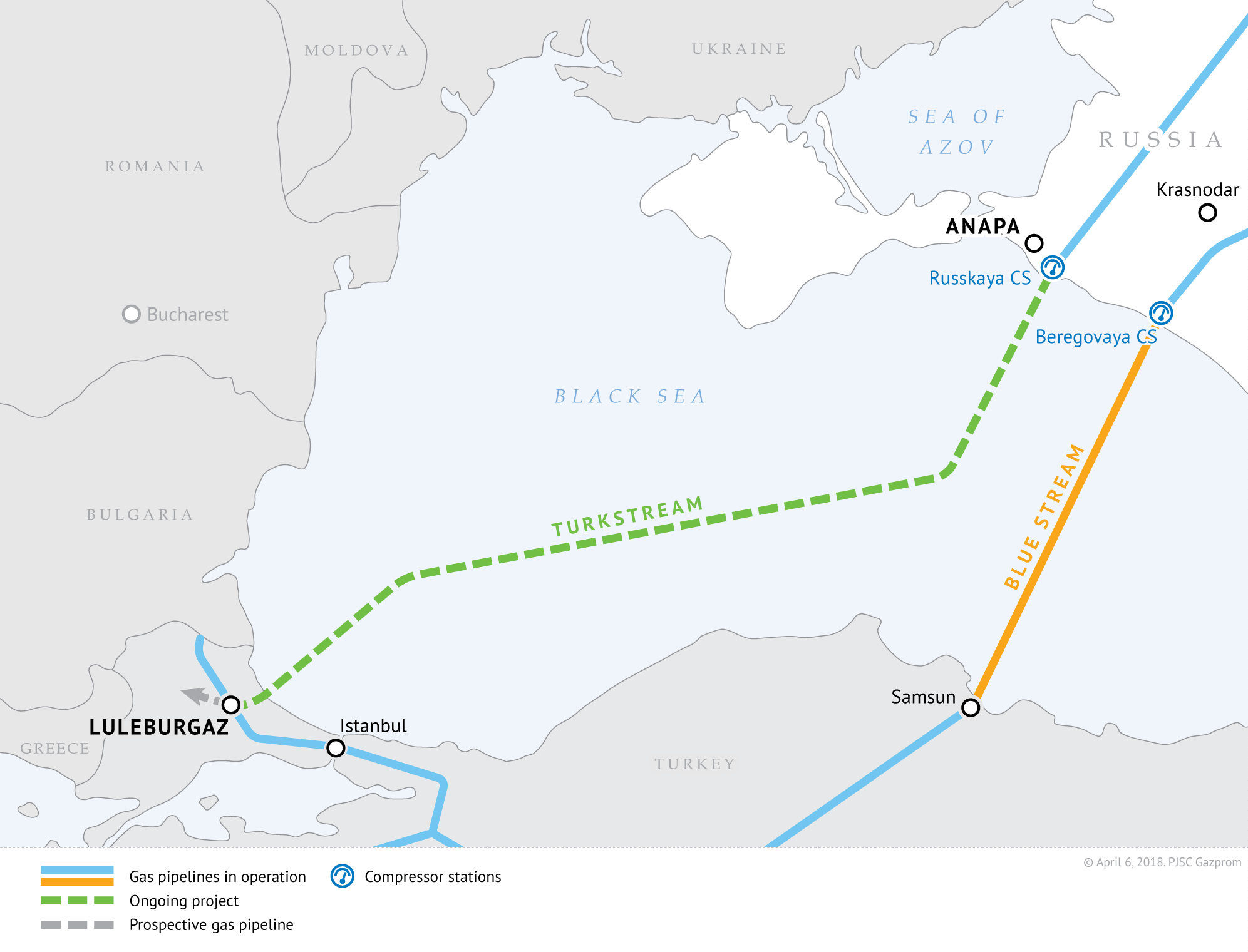Bulgaria to Seek Binding Bids for TurkStream Link by Jan 16
12/14/2018
(Reuters) - Bulgaria's state gas network operator Bulgartransgaz plans to seek binding bids from shippers by Jan 16 for a new gas link to transport mainly Russian gas from the TurkStream pipeline to central Europe, company documents show.
Bulgartransgaz plans to take a final investment decision and spend $1.59 billion (1.4 billion euros) on a new 300-mile (484-km) gas pipeline from its border with Turkey to Serbia by 2020, pending the outcome of the open season.
Potential shippers will be invited to register for the bidding from Dec. 21 and should file their offers to book capacity for 15 years by Jan. 16, according to the documents, which still require regulatory approval.
Bulgartransgaz plans to hold two more rounds of the economic test by the end of January, in case it is unable to secure enough interest to make the project viable.
Five companies have expressed interest in shipping gas through Bulgaria's network, and sources said Russia's Gazprom was interested in using most of the capacity.
Gazprom said on Nov. 30 it was considering whether to book capacity in the Bulgarian gas system. Bulgaria viewed that as a sign of Gazprom's intent to ship its gas from TurkStream to Serbia, Hungary and Austria through Bulgaria.
Moscow has also suggested that the option for an extension of TurkStream via Greece to Italy is also possible. Gazprom is building TurkStream to bypass Ukraine on the south, which has elevated political tension with the West over Russia's actions against Ukraine in the Kerch Strait.
TurkStream's two lines will each have an annual capacity of 15.75 billion cubic meters. The first line, which runs from Russia to Turkey under the Black Sea, is intended to deliver natural gas for Turkish consumption.
The United States contends the extension of TurkStream, along with construction of Nord Stream 2 pipeline across the Baltic Sea to Germany, will deepen European Union dependence on Russia and increase Moscow's grip over Ukraine.
Brussels has also said that Bulgaria, which is fully dependent on Russian gas, needs to also sell gas from other sources through its planned hub in Varna, rather than just building transit pipelines. Sofia has vowed to fully comply with EU rules and seek ways to transport some non-Russian gas through Varna.
Related News
Related News
Sign up to Receive Our Newsletter

- Kinder Morgan Proposes 290-Mile Gas Pipeline Expansion Spanning Three States
- Valero Plans to Shut California Refinery, Takes $1.1 Billion Hit
- Three Killed, Two Injured in Accident at LNG Construction Site in Texas
- Tallgrass to Build New Permian-to-Rockies Pipeline, Targets 2028 Startup with 2.4 Bcf Capacity
- TC Energy Approves $900 Million Northwoods Pipeline Expansion for U.S. Midwest
- New Alternatives for Noise Reduction in Gas Pipelines
- EIG’s MidOcean Energy Acquires 20% Stake in Peru LNG, Including 254-Mile Pipeline
- Construction Begins on Ghana's $12 Billion Petroleum Hub, But Not Without Doubts
- DOE Considers Cutting Over $1.2 Billion in Carbon Capture Project Funding
- Valero Plans to Shut California Refinery, Takes $1.1 Billion Hit
Pipeline Project Spotlight
Owner:
East African Crude Oil Pipeline Company
Project:
East African Crude Oil Pipeline (EACOP)
Type:
TotalEnergies in discussions with a Chinese company after Russian supplier Chelpipe was hit by sanctions.
Length:
902 miles (1,443 km)
Capacity:
200,000 b/d
Start:
2022
Completion:
2025





Comments